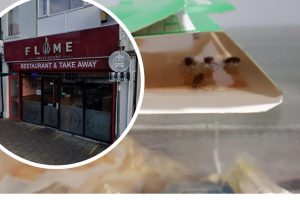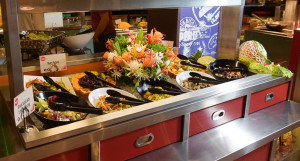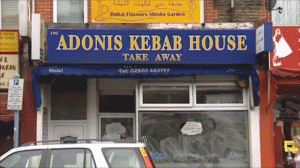It’s been 10 years since we were in Cardiff and my father’s home of Newport, Wales, and I felt strangely at home, but maybe it was the universal speak of food safety.
 A cockroach infestation was discovered in the kitchen of a Cardiff takeaway by inspectors after the owner ignored a request to deep clean the restaurant.
A cockroach infestation was discovered in the kitchen of a Cardiff takeaway by inspectors after the owner ignored a request to deep clean the restaurant.
Flame Grillhouse, in Clare Road, Riverside, was visited by food hygiene officers from Cardiff Council where they found dead and live cockroaches in the kitchen, preparation area and front service area.
Owner Mohammed Hussain was told by pest control contractors to close his business for the building to be deep cleaned but he failed to carry out the request and carried on trading.
A sentencing hearing at Cardiff Crown Court on Tuesday heard customers could have been at risk of salmonella, E. coli, and typhoid fever as a result of the infestation.
Prosecutor Nik Strobl said the business had initially been given a one star hygiene rating which had been upgraded to a three star rating in 2018.
Describing the incriminating inspection, the barrister said: “There was evidence of full life cycle cockroach infestation at the business. There were live and dead cockroaches found at various stages of maturity.”
He added that despite being told about the problem, Hussain failed to undertake cleaning of his business and continued to serve food in spite of the infestation.
After the discovery, the defendant agreed to voluntarily close the restaurant and on September 3, another inspection was carried which satisfied the officers the infestation had been eradicated.
The restaurant reopened on September and currently has a four star hygiene rating as of November 6, 2019.
Defence barrister William Bebb said his client fully accepted his culpability for the infestation and wished to apologise to the court.
Sentencing, Judge Niclas Parry said: “There would have been a serious risk of public health. Salmonella, E. coli and typhoid fever can all be caused when cockroaches and human consumption cross paths.
“The matter is aggravated by you paying lip service to your obligations and you ignoring more than one warning. You were aware there was an issue but you let it fester.”
Hussain was sentenced to four months imprisonment suspended for 18 months. He was also ordered to carry out 80 hours unpaid work and to pay £750 in costs.








.jpg) measure”.
measure”. Public health types have just published a report, concluding that sick staff likely had returned to work too soon after being ill and were still infectious, unintentionally contaminating customers’ food.
Public health types have just published a report, concluding that sick staff likely had returned to work too soon after being ill and were still infectious, unintentionally contaminating customers’ food.